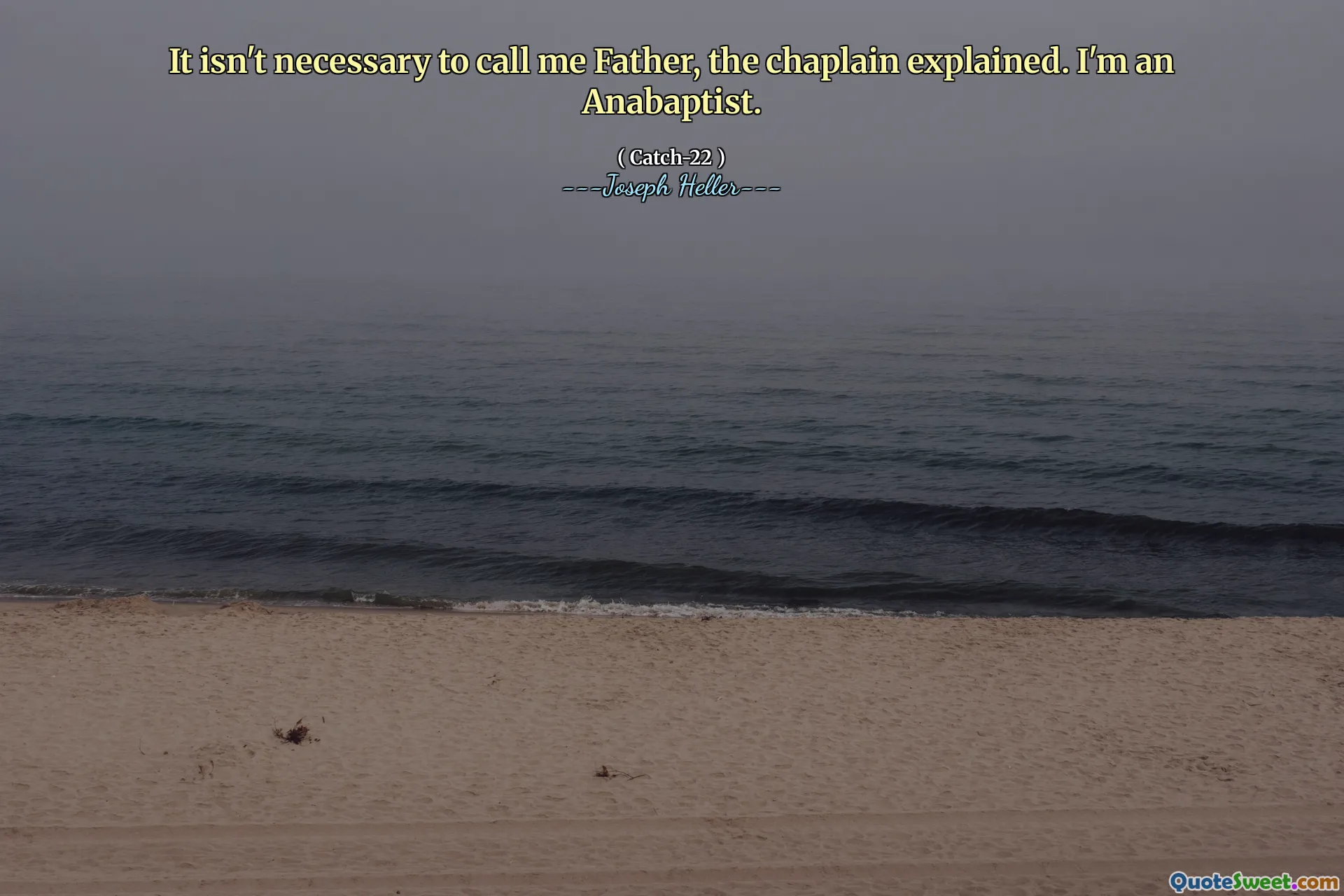
It isn't necessary to call me Father, the chaplain explained. I'm an Anabaptist.
In Joseph Heller's "Catch-22," a chaplain identifies himself as an Anabaptist, emphasizing that he doesn't require the title of "Father." This statement reveals an important aspect of his character and his approach to faith, suggesting that he values humility and personal connection over authoritative labels. It reflects the themes of individuality and the questioning of traditional hierarchies present throughout the novel.
The chaplain's perspective illustrates a broader commentary on the complexities of religious identity and the roles individuals play within the structures of war and society. By distancing himself from conventional titles, he challenges societal norms and invites a deeper understanding of his beliefs, resonating with the book's critique of bureaucracy and the quest for meaning amidst chaos.











